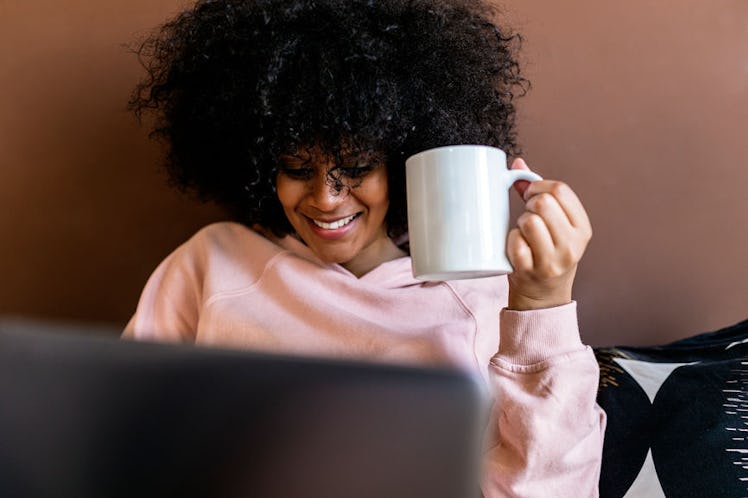
A New Survey Says You're Probably Sleeping On This One Trick That Can Help You Doze Off
It can't be said enough that adequate sleep is one of the most important aspects of your health. But even if you already know that (and I'm sure you do), that doesn't necessarily mean sleep always comes easily, or that you don't spend the occasional night tossing, turning, and wondering why your body won't let you doze off. Perhaps you have a few bedtime tricks up your sleep that help you get your rest, like drinking tea or reading a book, but according to the results of a new survey, the best way to fall asleep might be even simpler than that.
The new survey, commissioned by YouGov and digital eyewear brand Felix Gray, asked thousands of American adults aged 18 years old and up about their sleep habits, and what they'd be willing to sacrifice in exchange for quality rest. According to the results, which were shared with Elite Daily via email, let's just say that sleep is something that many people are desperate to get more of, but they simply don't always know how to go about getting it. The survey found that as many as one in 10 Americans would give up falling in love if it meant they could guarantee a good night's sleep for the rest of their lives (damn). Survey respondents also said that they'd willingly forgo a pay raise at work (13 percent of people, to be exact), a new car (19 percent), and even extra vacation days (22 percent), all in the name of consistent, quality sleep.
But alas, there are a few key factors holding people back from getting their beauty sleep, one of which seems to be more prominent than the rest. According to the survey, 71 percent of Americans spend an hour, if not more, staring at screens before bed — but only one in 10 people actually attempt to avoid screens before bed in the name of a good night's sleep.
Look, I'm not going to pretend that I don't sometimes fall into that 71 percent of people myself. But the reality is, the human brain really doesn't like the blue light that stares back at you when you're glued to your phone, laptop, or tablet screen, especially at night when you're about to wind down for bed. According to Harvard Health, exposing yourself to any kind of light at night "suppresses the secretion of melatonin, a hormone that influences circadian rhythms," thus impacting your ability to fall asleep. But blue light in particular, per the health resource, can have much more powerful effects on your ability to fall asleep.
Dr. NavNirat Nibber, a naturopathic doctor based in Canada, tells Elite Daily that ditching screen time at night — no matter how difficult it might be to break the habit — is a crucial priority when it comes to getting quality rest. She explains that falling asleep is oftentimes a "temperamental process," meaning it's important to make sure you're giving yourself all the right conditions to let that process happen.
"In order to fall asleep, your body needs to be in a 'rest and digest' state, otherwise known as a parasympathetic state," Dr. Nibber explains. Anything hyper-stimulating to the brain, she says, like watching movies or staring at your phone right before bed, totally disrupts this state.
So when it comes to creating the right conditions, as Dr. Nibber suggests, that means practicing sleep hygiene, y'all. Consider things like general light exposure, how much time you give yourself to wind down, what you eat and drink in the hours preceding bedtime, and yes, the boundaries you set for yourself around screen time. In other words, you definitely don't need to feel like you'd have to willingly give up something as huge as falling in love just to get some quality snooze time — it's not that impossible, friends. Be real with yourself about your nighttime screen habits, and maybe lean more into that comforting mug of tea, or that one book you've been meaning to finish, whenever you have the urge to reach for your phone when you're snuggled up in bed.